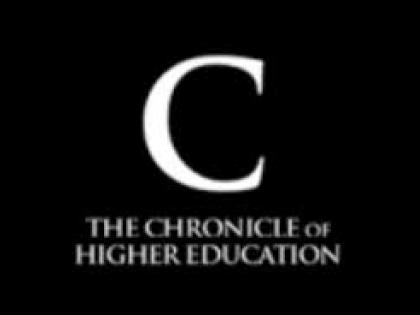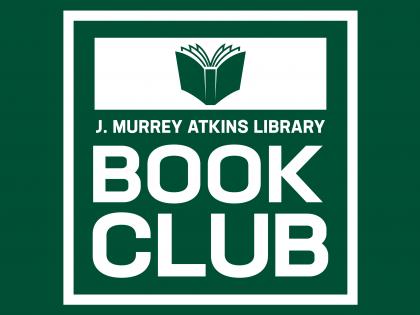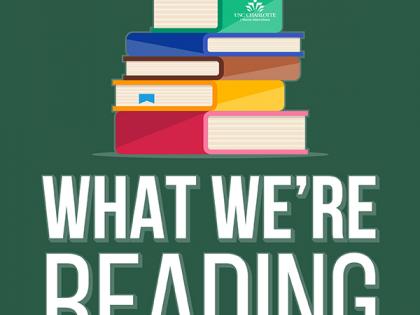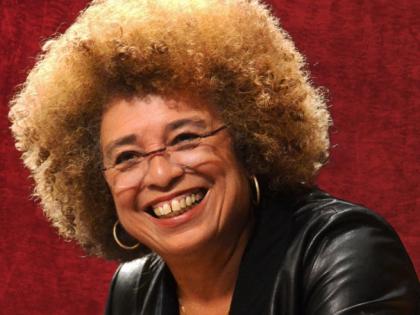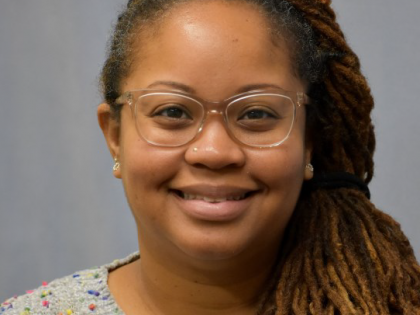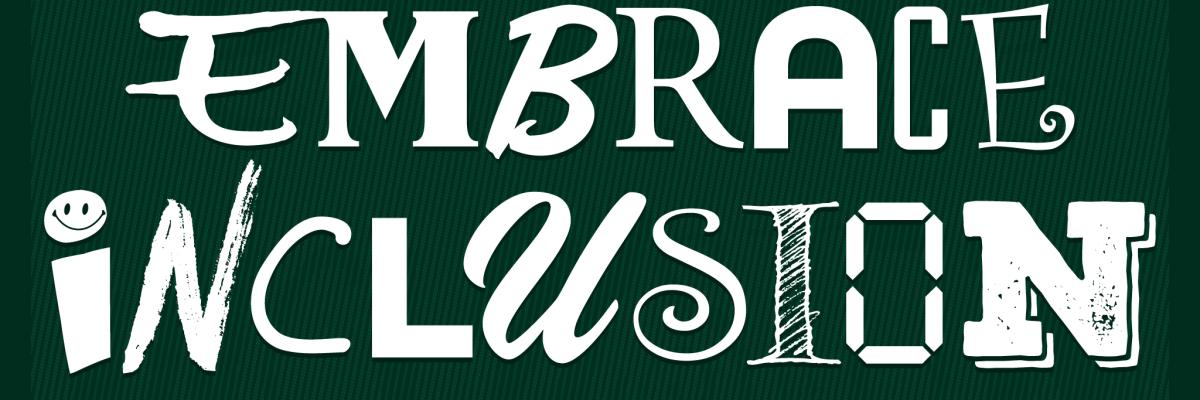
Atkins Diversity Statement
Atkins Library is committed to cultivating an inclusive environment where everyone feels welcome and differences are valued and respected. We embrace and support the spectrum of human and social identities and strive to create and maintain equity for all employees and users.
Our statement was inspired by Florida State University Libraries and the University of California Irvine Libraries' diversity statements.
Atkins Library Receives Access and Diversity Award- LEAD
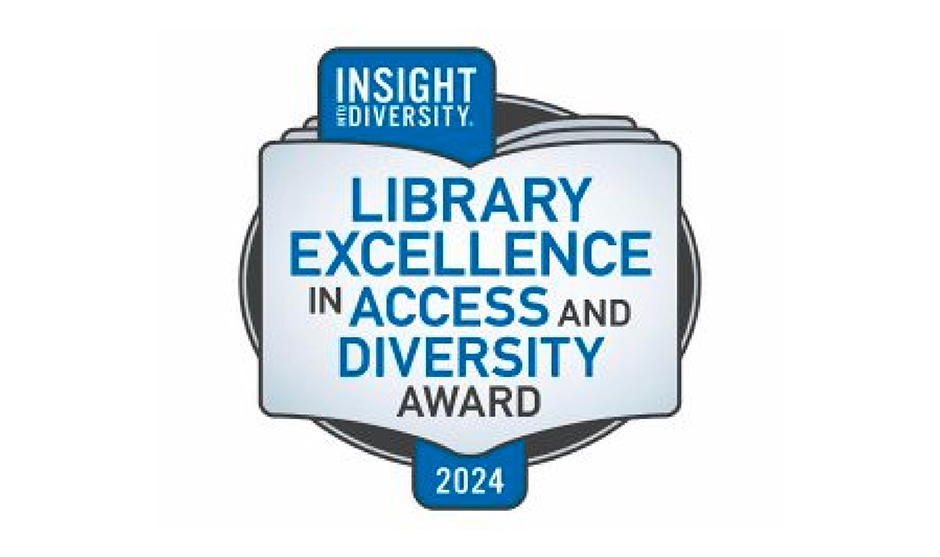
Atkins Library Racial Justice Plan
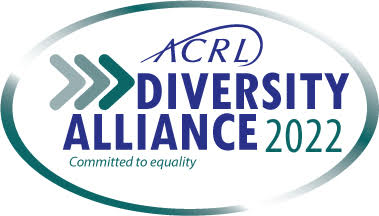
Atkins Library is a proud member of the ACRL Diversity Alliance-
The ACRL Diversity Alliance program unites academic libraries committed to increasing the hiring pipeline of qualified and talented individuals from underrepresented racial and ethnic groups. By working together and thinking more broadly, ACRL Diversity Alliance institutions will help diversify and thereby enrich the profession.

Film Screen with a Dean, a multi-disciplinary film series for which academic leaders from across campus select and show compelling documentaries, each followed by a panel discussion.
https://library.charlotte.edu/Screening_Racially_Charged
View insights from the film
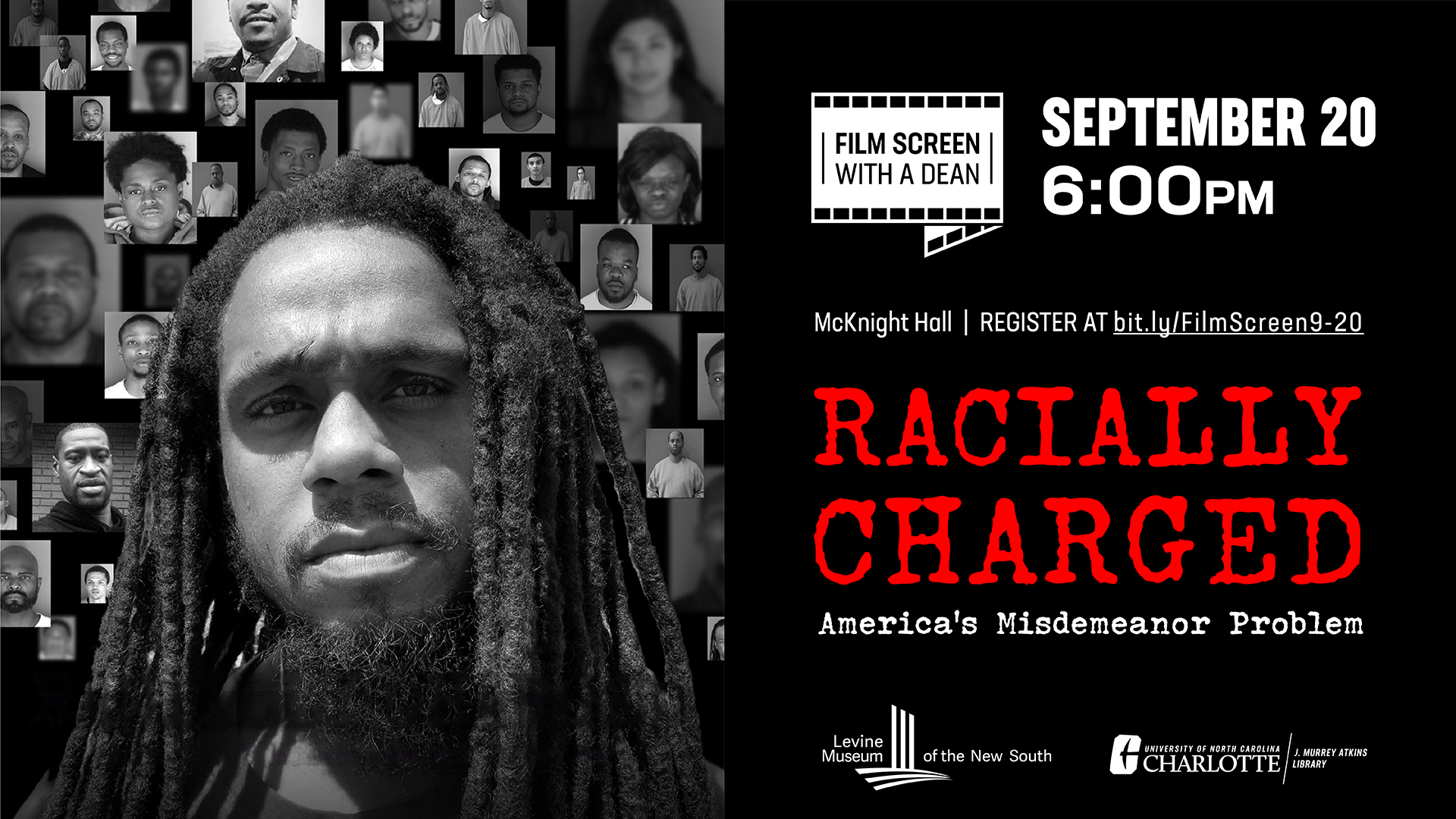
library.uncc.edu/WilmingtonOnFire
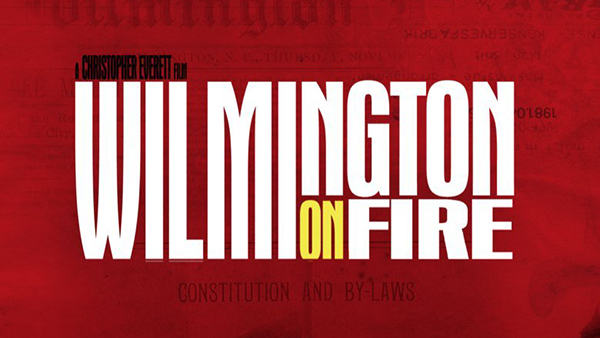
Other Statements & Acknowledgements
Atkins Library Statement in Response to Violent Brutality Against Black Americans
-
Statement by J. Murrey Atkins Library in response to the recent violent brutality against Black Americans
Our hearts, minds, and souls extend our deepest sympathy over the agony that Black Americans are suffering. The murders of George Floyd, Breonna Taylor, and Ahmaud Arbery represent some of the most recent episodes in a pervasive tradition of racial injustice in our nation. Our country is suffering as the democratic values we hold dear are shredded before our eyes. The right to peaceful protest and speech has been trampled on. The right of all People of Color to be treated with dignity and respect and an assumption of innocence has yet again been destroyed. We must stand together against police and political brutality and the attempt to destroy our freedoms and rights to fair and equitable treatment for all. Atkins Library condemns all forms of racism and violence against People of Color and stands resolute in declaring that Black Lives Matter. Atkins Library is committed to cultivating an inclusive environment where everyone feels welcome and differences are valued and respected. We embrace and support the spectrum of human and social identities and strive to create and maintain equity for all employees and users. Atkins Library pledges to subject its own conduct and collections to a deep, searching scrutiny and take significant steps to become the truly inclusive and diverse institution that it aspires to be. The employees of Atkins Library invite you to join us in this challenging and important work. The first step for all of us is education.
Here are some recommended resources:
- Anti-Racist Resource Guide
- Anti-Racism Resources (this set is developed specifically for a white audience in mind)
- Anti-Racism Resources for All Ages
Additional Resources
UNC Charlotte Statement Against Bias during the COVID-19 Pandemic
Land Acknowledgements
- Land Acknowledgement (developed by UNC Charlotte professors Dr. Elisabeth Paquette and Dr. Andrea Pitts)
- Best Practices for Engaging in Land Acknowledgements (developed by the Atkins Library Diversity & Inclusion Committee)
Atkins Library Statement on anti-LGBTQIA Legislation
Atkins Library Statement on anti-LGBTQIA Legislation
According to the Human Rights Campaign, more than 250 anti-LGBTQIA+ bills were introduced in state legislatures across the country in 2021. As these bills continue to appear in 2022 – with some 280 anticipated across the country this year – the Diversity & Inclusion Committee of J. Murrey Atkins Library is greatly concerned about the freedom and wellbeing of LGBTQIIA+ individuals and their families.
This recent string of legislation includes:
- Florida’s “Don’t Say Gay” bill that censors educators and librarians from discussing the topics of sexual orientation or gender identity. Similar measures are being considered in other states as well.
- A bill banning LGBTQ+ books from classrooms and school libraries passed by the Oklahoma Senate Education Committee. Such book bans are proliferating across the country.
- A South Dakota law restricting the participation of trans youth in school athletics. There are now eleven states with similar laws on the books.
- Texas’ anti-trans order that criminalizes parents and caregivers who seek to provide gender affirming treatments to their children. Other states could soon follow suit.
By denying trans youth the right to necessary medical care, censoring stories and experiences of the LGBTQ+ community in classrooms and libraries, and restricting access to appropriate facilities like restrooms, these measures work to marginalize and dehumanize LGBTQIA+ individuals and families.
As university employees operating in the University of North Carolina system, we cannot ignore our own recent legislative past. Most notably, HB2 sought to discriminate based on gender identity and bar individuals from access to public restrooms. While HB2 was fully repealed in 2020, state-level legal protections for LGBTQIA+ people in North Carolina remain limited – there is insufficient legal recourse across much of the state when LGBTQIA+ individuals experience discrimination in such basic areas of life as housing and adoption. Because of these severe legal shortcomings, the Human Rights Campaign has classified North Carolina as “high priority to achieve basic equality,” and the Movement Advancement Project has ranked it “low” for LGBTQ policies.
The Diversity & Inclusion Committee acknowledges and condemns the harm this wave of legislation – as well as the inadequate protections in place here in North Carolina – has caused to our LGBTQIA+ employees, students, and local community. Just reading about these sorts of laws takes a mental toll, not to mention the concern many have for family or friends living in one of the states where this legislation exists. We encourage all employees in need of support to reach out to the Employee Assistance Program. If you witness or experience acts of bias, discrimination, or hate on campus, please file a report with the university’s Bias Advisory Resource Team at bart.uncc.edu. To our LGBTQIA+ community, we stand with you against the ignorance and prejudice these laws represent.
Further information
- https://www.thetrevorproject.org/
- https://www.hrc.org/press-releases/2021-slated-to-become-worst-year-for-lgbtq-state-legislative-attacks
- https://www.aclu.org/legislation-affecting-lgbtq-rights-across-country-2021
- https://www.vox.com/2022/3/15/22976868/dont-say-gay-florida-unconstitutional-ron-desantis-supreme-court-first-amendment-schools-parents
- https://www.hrc.org/resources/state-scorecards/north-carolina
- https://www.lgbtmap.org/equality-maps/profile_state/NC
- https://www.findlaw.com/legalblogs/law-and-life/understanding-floridas-dont-say-gay-bill/
- https://www.nytimes.com/2022/01/30/books/book-ban-us-schools.html
- https://www.motherjones.com/politics/2022/03/alabama-transgender-medical-care-ban-texas-abbott-arkansas-idaho-teenagers-puberty-blockers-hormone-therapy/
Celebrating Cultures
Monthly Celebrations of Culture and Heritage
- Hispanic Heritage Month-The More You Know Bridgette Sanders (Chair-Internal Conversations and Presentations subcommittee of the Atkins Diversity and Inclusion Committee)
- UNC Charlotte Celebrates Indigenous People's Month - TED Talk from Brittany Hunt
Diversity Includes Many Things
We acknowledge that diversity includes any combination of identities and experiences based upon:
Gender Expression
Gender expression is a person's behavior, mannerisms, interests, and appearance that are associated with gender in a particular cultural context, specifically with the categories of femininity or masculinity. This also includes gender roles. These categories rely on stereotypes about gender. Gender expression typically reflects a person's gender identity (their internal sense of their own gender), but this is not always the case. Gender expression is separate and independent both from sexual orientation and gender assigned at birth. A type of gender expression that is considered atypical for a person's externally perceived gender may be described as gender non-conforming.
Race and Ethnicity
Race refers to physical differences that groups and cultures consider socially significant. For example, people might identify their race as Aboriginal, African American or Black, Asian, European American or White, Native American, Native Hawaiian or Pacific Islander, Māori, or some other race. Race refers to a person's physical characteristics, such as bone structure and skin, hair, or eye color.
Ethnicity refers to shared cultural characteristics such as language, ancestry, practices, and beliefs. Ethnicity, however, refers to cultural factors, including nationality, regional culture, ancestry, and language. ... You can have more than one ethnicity but you are said to have one race, even if it's "mixed race."
Sexual Orientation
Sexual orientation refers to an enduring pattern of emotional, romantic and/or sexual attractions to men, women or both sexes. Sexual orientation also refers to a person's sense of identity based on those attractions, related behaviors and membership in a community of others who share those attractions. Research over several decades has demonstrated that sexual orientation ranges along a continuum, from exclusive attraction to the other sex to exclusive attraction to the same sex. However, sexual orientation is usually discussed in terms of three categories: heterosexual (having emotional, romantic or sexual attractions to members of the other sex), gay/lesbian (having emotional, romantic or sexual attractions to members of one's own sex) and bisexual (having emotional, romantic or sexual attractions to both men and women). This range of behaviors and attractions has been described in various cultures and nations throughout the world. Many cultures use identity labels to describe people who express these attractions. In the United States the most frequent labels are lesbians (women attracted to women), gay men (men attracted to men), and bisexual people (men or women attracted to both sexes). However, some people may use different labels or none at all.
Sexual orientation is distinct from other components of sex and gender, including biological sex (the anatomical, physiological and genetic characteristics associated with being male or female), gender identity (the psychological sense of being male or female)* and social gender role (the cultural norms that define feminine and masculine behavior).
Sexual orientation is commonly discussed as if it were solely a characteristic of an individual, like biological sex, gender identity or age. This perspective is incomplete because sexual orientation is defined in terms of relationships with others. People express their sexual orientation through behaviors with others, including such simple actions as holding hands or kissing. Thus, sexual orientation is closely tied to the intimate personal relationships that meet deeply felt needs for love, attachment and intimacy. In addition to sexual behaviors, these bonds include nonsexual physical affection between partners, shared goals and values, mutual support, and ongoing commitment. Therefore, sexual orientation is not merely a personal characteristic within an individual. Rather, one's sexual orientation defines the group of people in which one is likely to find the satisfying and fulfilling romantic relationships that are an essential component of personal identity for many people.
Faith Tradition
Faith traditions are religious associations or affiliations in which individual members indicate they identify. Examples include: African Methodist Episcopal, Church of God, Jewish Orthodox, Muslim, Presbyterian, and all other affiliations.
Nationality
Nationality is the status of belonging to a particular nation, whether by birth or naturalization.
Ability
Ability is the possession of the means or skill to do something.
Veteran Status
The legal definition of veteran under Title 38 of the Code of Federal Regulations is “a person who served in the active military, naval, or air service and who was discharged or released under conditions other than dishonorable.
Cultural Heritage
Cultural Heritage is an expression of the ways of living developed by a community and passed on from generation to generation, including customs, practices, places, objects, artistic expressions and values.
Age
Age is the length of time or the amount of time during which a person, animal, or thing has lived or existed. Ageism is a type of discrimination that involves prejudice against people based on their age.
Atkins Library Diversity & Inclusion Committee - Moving Forward
The Atkins Library Diversity and Inclusion Committee focuses its initiatives on developing concrete steps for staff to increase their understanding of diversity issues and facilitating opportunities for broadening awareness of diversity as an essential way of creating a fair and open-minded work environment. The Diversity/Inclusion Committee provides leadership and guidance to the Library by encouraging awareness about and discussions of diversity and inclusion.
- Atkins Library Diversity & Inclusion Committee--Task force on Recruitment, Hiring, and Retention (Progress & Actions)
- Final Report (November 13, 2019)
- Actions Adopted and Under Continuous Implementation
- Diversity Day
- Atkins Library hosted Diversity Day 2019 on February 28, 2019. This day-long event, held on the campus of UNC Charlotte, featured a keynote presentation by Mark Puente, Director of Diversity and Leadership Programs at the Association of Research Libraries. The program also included a series of presentations by educators and professionals from the community and across the nation.
- Atkins Diversity Book Club
- The Atkins Library book club focuses on diversity and cultural topics to spark conversations around inclusivity, equity, and awareness of human differences embedded in our society and culture. Originally part of the Atkins Library Self-Selected Group Development, Staff Development program, this book club is open to all faculty, staff, and students, an initiative recommended by the Provost. The Atkins Library Diversity & Inclusion Committee sponsors this event and welcomes participation from the campus community to lead book discussions and to make book recommendations.
- Additional Resources
- Anti-Oppression Resources
This guide provides resources to learn about and work against the many forms of oppression in our society. - Community DEI Toolkit
The DEI Toolkit aims to identify best practices for promoting diversity, equity, and inclusion on the UNC Charlotte campus.
- Anti-Oppression Resources
Identiversity
LGBTQ information, terms, and topics. Identiversity
All About Pronouns
Helpful information about pronouns All about Pronouns
